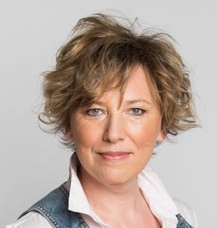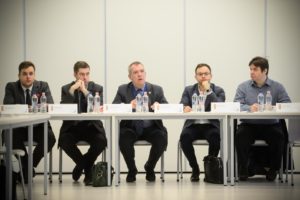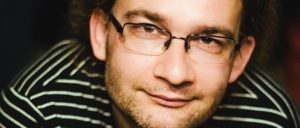Dean of the Faculty of Water Sciences, Associate Professor of the Department of Regional Water Management. A qualified agricultural engineer, he is still attracted to the land and farming. He contributed to clearing up the Kolontar red sludge disaster, the Gulf of Mexico oil spill survey, to the design of the Lake Balaton water quality monitoring system and also supported the work of the UN World Space Commission.
He was born to lead, his colleagues say. He has been in a management position in higher education in Hungary for 12 years, either as dean or vice-rector. He considers himself primarily as a tutor, although teaching was not in his mind as a career choice. As a student at the University of Agricultural Sciences in Debrecen, he made a sport out of excelling. He does not spend any time with sports, he keeps himself in shape by gardening; it’s his passion, his hobby. This represents relaxation for him, because he does not really rest. He works at an amazing speed, believing that tirelessness is in his genes. For him, it is unthinkable to stay in one place for more than half an hour on his own, but at the same time he lives a quiet family life at the weekends, not going “beyond the fence”. He is at ease when he has to appear live on the air;, the microphone is his friend and students call him the stand-up dean. He believes that prestige and respect can only be achieved through hard work. He did not want to take up the position of Dean of the Faculty of Water Sciences, but now he admits that it is one of the biggest professional challenges of his life.
I’ll be a gardener of trees.
He was born in Hajdúböszörmény, where agriculture was the main source of income. His parents were merchants, and he was introduced to farming through his grandparents. He says that in their town, in the 1980s, the agricultural engineer was part of the social elite, alongside the doctor and the teacher, which is why he chose this profession. “I didn’t want to be a doctor. I never thought of becoming a teacher, but I did. I was always attracted to nature, to the land, and even as a child I loved being out in the countryside. I saw what an agricultural engineer was doing, and I was hooked. I often helped out my grandparents, hoeing potatoes, detasseling corn, pulling up beans. I fell in love with farming, and I still am. At home, in our garden, we have forty fruit trees, we grow at least twenty-five different plants in the vegetable garden; we’re self-sufficient in fruit and vegetables. This is my everything. It relaxes me if I can be out in the garden, hoeing, weeding, pruning or harvesting.” What he didn’t learn from his parents and grandparents, he learned at the nationally renowned, strong, practice-oriented training at the University of Agricultural Sciences in Debrecen. “I studied horticulture, plant protection and landscape design. I also give advice to the neighbours; they ask me why the leaves of the grapes are stained.”

Everyone has a sport…
In his second year at university, he was asked to become a demonstrator in the Department of Agricultural Water Management. As a student, he was already involved in teaching, research and expertise in the department, and got close to the water. “I was picked because I graduated from university with nothing but A grades. I graduated with a Rector’s Awards. In the meantime, I got my tractor driving licence, completed a course in wildlife management and qualified as a chartered accountant. I used to keep the books for many of my colleagues as a favour, for fun.”
With the knowledge of water management and environmental protection acquired during his years as a demonstrator and doctoral student, he became an expert, running a serious business in parallel with his academic activities. Even so, his aim was always the same: to look for the new. “I was born under the sign of Gemini, they are fun, chatty and always want something new. It’s also what took me forward in my academic career.” He also completed the Doctoral School of Plant Production and Horticultural Sciences in Debrecen, and the Environmental Engineering course at the Pannon University of Veszprém. After obtaining his degree in 1998, he was promoted from departmental engineer to assistant professor, then to associate professor. In 2009, he and his colleagues went to Gyöngyös to try their luck, and he had many professional opportunities waiting for him at the Károly Róbert College, and not just any opportunity.
Tibor Bíró (Source: NKE)
Success story ON!
Among other things, the college researched the snowmelt dynamics of permafrost (intermittent or permanent) areas beyond the Arctic Circle in relation to climate change. For this study, they were the first in the world to use a hyperspectral remote sensing technique at low flight altitude. “This job was the beginning of my success story, more precisely when I was asked to apply for the dean’s position in Gyöngyös. I applied, I got it. That’s how my management career started in 2009. In Gyöngyös, we have rethought our unit and created the Natural Resources Management and Rural Development Department, including a new Remote Sensing Institute.”
In April 2010, the news hit the world: an explosion had caused the largest oil spill in US history in the Gulf of Mexico. “The Americans knew our Arctic results and knew they needed a similar technique to measure the oil spill. What was irreplaceable for them was not primarily the hyperspectral camera (an instrument that detects more electromagnetic radiation than multispectral sensors), but the Hungarian grey matter. After all, we started calibrating the system, establishing the link between surface phenomena and measured intensities, but we were also pioneers in the aircraft application.” So it was that the director of aviation of the company Galileo, still existing today, travelled to Gyöngyös and signed an agreement to work together. “That day I was invited to appear on M1’s “Evening” programme. It’s a good thing I wore a suit, because originally only the flight director was supposed to be on screen, but at the last minute it turned into a studio discussion instead of an interview. Everything happened so suddenly that I didn’t even have time to get the chair up to the right height, so I looked shorter than the director on the screen, when in reality he is shorter.”
In October of that year, Hungary suffered its worst industrial disaster ever, with ecological consequences. The dam of one of the sludge reservoirs belonging to the alumina factory in Ajka burst, spilling a mixture of red mud and alkaline water, which flooded the surrounding villages. “From the very first moment, we were involved in implementing technical tasks. With the permission of the disaster management, the first measurements were taken from a helicopter with a thermal camera. We also calculated how much sludge was spilled using laser scanning technology. I calculated the storage curve of the X/A reservoir for continuous service with my own hands. The flooded area was surveyed using hyperspectral techniques. We had had a lot of media coverage, and this unfortunate event did a lot to raise the profile and recognition of the institution.”
Feast your eyes on Gyöngyös!
In May 2011, the phone rang at the college in Gyöngyös, with the head of the United Nations Space Commission speaking on the other end of the line. He asked about hyperspectral technology that they intended to use in natural disasters and damage assessment, but lacked the expertise. This is how another cooperation agreement was established, this time between the college and the UN. “Since the UN Space Commission is based in Vienna, we were invited to sign it there. Balázs Csuday, Hungary’s ambassador to the UN in Vienna at the time, was also present; everyone was interested and I even gave an interview to Chinese state television. In the presence of more than 80 representatives of the Member States, I signed the agreement in the main hall of the Space Committee, which was in session, with Takao Doi, who went into space twice. The cooperation was praised by everyone, and of course I had to present: I can say that I presented in the UN. After that, we ran the Regional Support Office of the World Space Office in Gyöngyös for several years. I will certainly tell my grandchildren about this…”
In the summer of 2012, as a result of the Mexican oil spill remediation work, the well-known company Galileo came back to us, this time in connection with a NASA contract. The NASA project was about biomaterials research, aiming to identify organisms using hyperspectral technology. The testing was carried out in the shallow waters of Florida, with its diverse marine life, to identify different algae and other marine life. “The airborne hyperspectral technology studies are rumoured to have been needed to prepare for the next mission to Mars.
After his success, it is not surprising that, in 2014, he was asked to head the Szarvas campus of Szent István University, and later its faculty in Békés County. “As dean, my task there was to revive the former agro-water, or agricultural water management training, since this was my original profession. But, of course, remote sensing also leaked in our scientific work. We also created a course: the Master of Agricultural Water Management Engineering. All in all, I did something very similar in Szarvas as I am doing now in Baja.”
Boxing in Baja, happiness in Baja
The Faculty of Water Sciences of the Ludovika University of Public Service started its operations five years ago, in February 2017, on the Baja campus, thanks to its predecessors with more than 50 years of professional history. Tibor Bíró was asked to take the first dean’s position, but at the time he did not want to accept the post. “I live in Debrecen with my family. Szarvas isn’t close to it either, but I couldn’t imagine commuting between Baja and Debrecen, yet I do it every week. Of course I’m very happy for the request, it’s one of the biggest challenges of my life.”
In addition to day-to-day operational tasks, the Dean of the Faculty of Water Sciences is also responsible for social and professional involvement, as well as management of international and scientific affairs. In addition, due to the geographical distance of the Baja unit, he also has to deal with operational and dormitory issues. “I usually work in the office from 7.30 p.m. to 12.30 a.m. I never wait for the end of the day; I wait for results, I put all my energy into the affairs in Baja. We are also facing a lot of difficulties, but if, after ten failures, one important result comes, I say it’s worth it!”
Communication and networking
Tibor Bíró approaches everyone with friendly directness, while maintaining his authority. He believes that respect can only be earned through work and results, but it is also necessary, because without it, he would not be able to lead. “I have always believed that if colleagues see my performance, they respect me and forgive my mistakes and tolerances, which we all have, because we are human.” The extraordinary directness, dialogue skills and communication talent are good for many things. “I think my ability to build and maintain relationships has played a big role in my professional success. I’ve met many influential people over the years, but I have never asked or expected anything from them, but when they asked for professional help, I gave it. I always saw what has opportunities, I embraced it; I could bring together people from the relevant disciplines and we created fantastic projects. So if there’s a scientific problem, I’ll get the team together and we can soar!”
His verbal skills have also caught the attention of students, who have dubbed him the stand-up dean. “If I’m handed a microphone, I can talk for hours about anything, even interestingly. To be serious, my primary and most important job, apart from being a leader, is teaching, but I am also a researcher.”
He claims to be impatient, and does not like to waste too much time on one thing. He is someone who may admire the beautiful Sugovica riverbank near the university, but he doesn’t fish. “Perhaps it’s my impatience that wears out most of my colleagues. They say they can’t follow me because I want too much too soon. But it’s just that I know exactly how long the managers’ terms of office are, and I know how much I want to achieve before 2024. So I’m actually impatient with myself.”
Névjegy
Tibor Bíró
Place and date of birth: Hajdúböszörmény, 23.05.1970
Qualifications: agricultural engineer, environmental engineer
Research areas: Plains water management, irrigation, water quality control, remote sensing
Publications: dr. Tibor Bíró’s profile in the Hungarian Archives of Scientific Works
Family status: Married for 27 years, his son is 25, his daughter is 23 Hobbies: gardening




